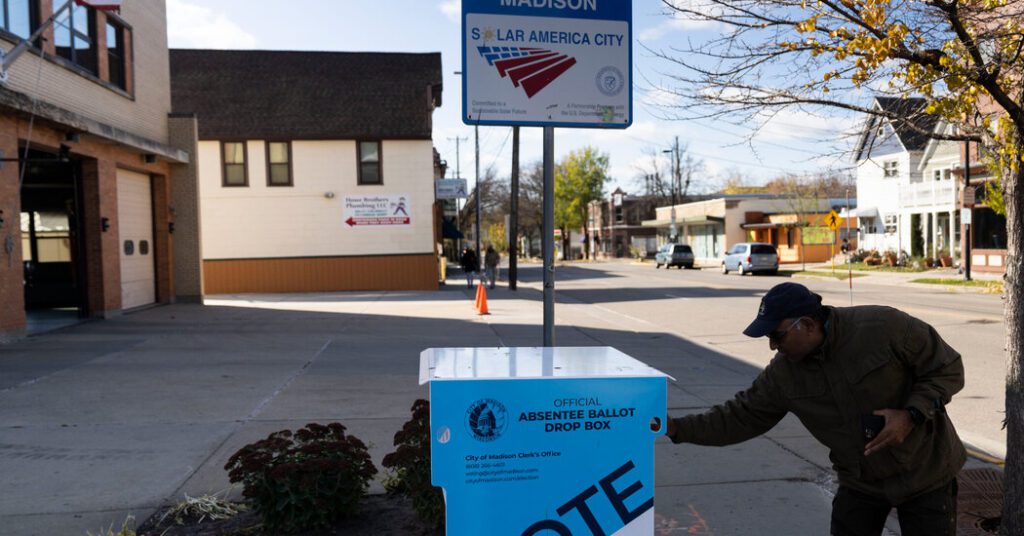Evers on Friday called the ballot drop box ruling “a victory for our democracy” and said, “We will keep fighting to make it as easy as possible for every voter to cast their ballot safely, securely and in the time possible.”
Madison Mayor Satya Rhodes Conway, a Democrat, also praised the ruling in a statement: “I am thrilled that common sense has prevailed and that we now have a Supreme Court that is interested in expanding voting rights in Wisconsin, not restricting them,” the mayor said.
Some Republicans see it differently. Rep. Tom Tiffany, whose district covers much of northern Wisconsin, lamented in a statement that “the liberal Wisconsin Supreme Court has overturned a precedent it set,” and said the decision goes against the wishes of Wisconsin voters. State Assembly Speaker Robin Vos said in a statement that it is “sad and frustrating to see a liberal activist judge ignore past court decisions and arbitrarily enforce the law to deliver a win for her political supporters.”
Unlike most state supreme courts, the Wisconsin Supreme Court is officially nonpartisan. Justices are elected by statewide vote and serve rotating 10-year terms. Still, the court's ideological lines have long been clear, and its justices' campaigns have become less neutral.
During her candidacy last year, Judge Janet Protasiewicz said abortion should be “a woman's right to choose” and asserted that state congressional districts are “rigged.” It was the most expensive judicial election in American history, and her victory flipped the Supreme Court from a 4-3 conservative majority to a liberal one.
At the very least, some of the Supreme Court's newest decisions may not last: The liberal justices whose terms expire next year are not seeking reelection, meaning that a conservative candidate could regain the majority. Campaigning has already begun.

